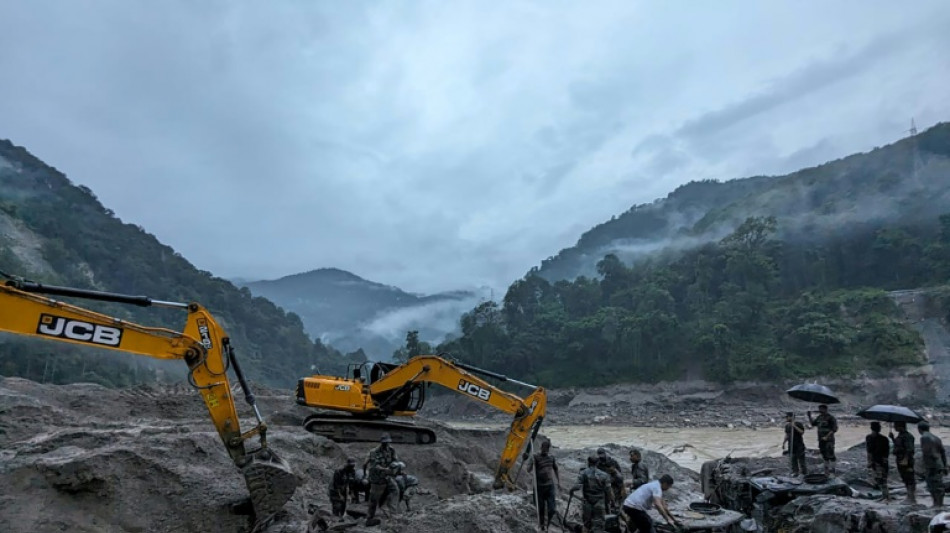
-
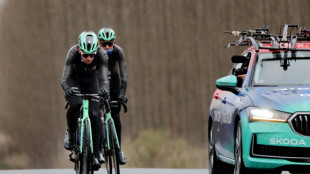 French cycling hope Seixas dreaming of Tour de France debut
French cycling hope Seixas dreaming of Tour de France debut
-
France detects Russia-linked Epstein smear attempt against Macron: govt source

-
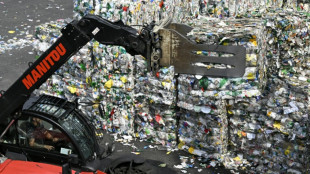 EU nations back chemical recycling for plastic bottles
EU nations back chemical recycling for plastic bottles
-
Terror at Friday prayers: witnesses describe blast rocking Islamabad mosque
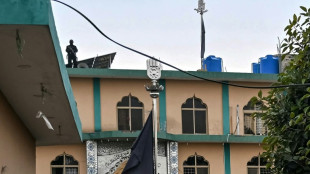
-
 Iran expects more US talks after 'positive atmosphere' in Oman
Iran expects more US talks after 'positive atmosphere' in Oman
-
US says 'key participant' in 2012 attack on Benghazi mission arrested
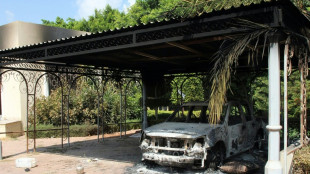
-
 Why bitcoin is losing its luster after stratospheric rise
Why bitcoin is losing its luster after stratospheric rise
-
Arteta apologises to Rosenior after disrespect row

-
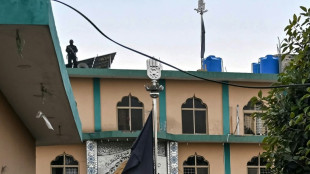 Terror at Friday prayers: witness describes 'extremely powerful' blast in Islamabad
Terror at Friday prayers: witness describes 'extremely powerful' blast in Islamabad
-
Winter Olympics men's downhill: Three things to watch
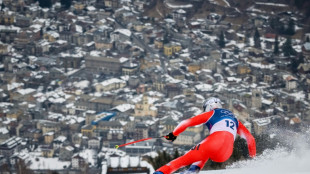
-
 Ice dancers Chock and Bates shine as US lead Japan in team event
Ice dancers Chock and Bates shine as US lead Japan in team event
-
Stellantis takes massive hit on 'overestimation' of EV demand

-
 Stocks rebound though tech stocks still suffer
Stocks rebound though tech stocks still suffer
-
Spanish PM urges caution as fresh rain heads for flood zone
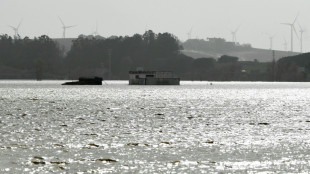
-
 Iran says to hold more talks with US despite Trump military threats
Iran says to hold more talks with US despite Trump military threats
-
Russia accuses Kyiv of gun attack on army general in Moscow

-
 Cambodia reveals damage to UNESCO-listed temple after Thailand clashes
Cambodia reveals damage to UNESCO-listed temple after Thailand clashes
-
Norway crown princess 'deeply regrets' Epstein friendship

-
 Italy set for Winter Olympics opening ceremony as Vonn passes test
Italy set for Winter Olympics opening ceremony as Vonn passes test
-
England's Jacks says players back under-fire skipper Brook '100 percent'

-
 Carrick relishing Frank reunion as Man Utd host Spurs
Carrick relishing Frank reunion as Man Utd host Spurs
-
Farrell keeps the faith in Irish still being at rugby's top table

-
 Meloni, Vance hail 'shared values' amid pre-Olympic protests
Meloni, Vance hail 'shared values' amid pre-Olympic protests
-
Olympic freestyle champion Gremaud says passion for skiing carried her through dark times

-
 US urges new three-way nuclear deal with Russia and China
US urges new three-way nuclear deal with Russia and China
-
Indonesia landslide death toll rises to 74
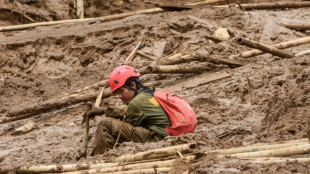
-
 Hemetsberger a 'happy psychopath' after final downhill training
Hemetsberger a 'happy psychopath' after final downhill training
-
Suicide blast at Islamabad mosque kills at least 31, wounds over 130

-
 Elton John accuses UK tabloids publisher of 'abhorrent' privacy breaches
Elton John accuses UK tabloids publisher of 'abhorrent' privacy breaches
-
Lindsey Vonn completes first downhill training run at Winter Olympics

-
 Digital euro delay could leave Europe vulnerable, ECB warns
Digital euro delay could leave Europe vulnerable, ECB warns
-
Feyi-Waboso out of England's Six Nations opener against Wales

-
 Newcastle manager Howe pleads for Woltemade patience
Newcastle manager Howe pleads for Woltemade patience
-
German exports to US plunge as tariffs exact heavy cost

-
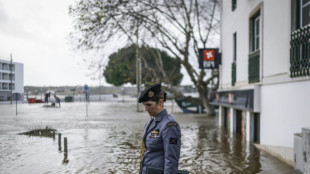 Portugal heads for presidential vote, fretting over storms and far-right
Portugal heads for presidential vote, fretting over storms and far-right
-
Suicide blast at Islamabad mosque kills at least 30, wounds over 130: police

-
 Russia says Kyiv behind Moscow shooting of army general
Russia says Kyiv behind Moscow shooting of army general
-
Greenland villagers focus on 'normal life' amid stress of US threat

-
 Iran, US hold talks in Oman after Trump military threats
Iran, US hold talks in Oman after Trump military threats
-
Stocks waver as tech worries build

-
 Dupont, Jalibert click to give France extra spark in Six Nations bid
Dupont, Jalibert click to give France extra spark in Six Nations bid
-
'Excited' Scots out to prove they deserve T20 World Cup call-up

-
 EU tells TikTok to change 'addictive' design
EU tells TikTok to change 'addictive' design
-
India captain admits 'there will be nerves' at home T20 World Cup

-
 Stellantis takes massive hit for 'overestimation' of EV shift
Stellantis takes massive hit for 'overestimation' of EV shift
-
'Mona's Eyes': how an obscure French art historian swept the globe

-
 Iran, US hold talks in Oman
Iran, US hold talks in Oman
-
Iran, US hold talks in Oman after deadly protest crackdown

-
 In Finland's forests, soldiers re-learn how to lay anti-personnel mines
In Finland's forests, soldiers re-learn how to lay anti-personnel mines
-
Israeli president visits Australia after Bondi Beach attack

| SCS | 0.12% | 16.14 | $ | |
| GSK | 1.11% | 59.835 | $ | |
| NGG | 0.79% | 87.585 | $ | |
| CMSC | -0.19% | 23.505 | $ | |
| BTI | 1.55% | 62.933 | $ | |
| BCC | 1.65% | 90.66 | $ | |
| BCE | -0.71% | 25.39 | $ | |
| AZN | 3.29% | 193.53 | $ | |
| CMSD | 0.17% | 23.931 | $ | |
| RIO | 2.12% | 93.09 | $ | |
| JRI | 0.76% | 12.979 | $ | |
| RBGPF | 0.12% | 82.5 | $ | |
| RYCEF | 0.3% | 16.67 | $ | |
| VOD | 2.7% | 15.025 | $ | |
| BP | 2.05% | 38.97 | $ | |
| RELX | -1.67% | 29.595 | $ |

Glacial lake floods: a growing, unpredictable climate risk
Indian rescuers are searching for over 100 people missing in a flash flood caused by a glacial lake bursting its banks, a risk scientists warn is increasing with climate change.
AFP explains what glacial lake outburst floods are and the risks they pose, particularly in parts of Asia:
What is a glacial lake outburst flood?
A glacial lake outburst flood (GLOF) is the sudden release of water that has collected in former glacier beds.
These lakes are formed by the retreat of glaciers, a naturally occurring phenomenon that has been turbocharged by the warmer temperatures of human-caused climate change.
Glacier melt is often channelled into rivers, but ice or the build-up of debris can form what is effectively a natural dam, behind which a glacial lake builds.
If these natural dams are breached, large quantities of water can be released suddenly from the lakes, causing devastating flooding.
What causes these breaches?
The natural dams holding back glacial lakes can be breached for a variety of reasons, explained Lauren Vargo, a glacier expert and scientist at the Antarctic Research Centre in New Zealand.
Causes include "an avalanche of snow, or a landslide causing a wave in the lake, or overfilling of the lake... from rain or the glacier melting", she told AFP.
Sometimes the dam has been gradually degraded over time, or is ruptured by an event like an earthquake.
The breaches are highly unpredictable, "because they can be caused by so many different factors", she added.
What is the impact of climate change?
Climate change is driving the disappearance of glaciers, with half the Earth's 215,000 glaciers projected to melt by the end of the century, even if warming can be capped at 1.5 degrees Celsius.
The volume of glacial lakes has jumped by 50 percent in 30 years, according to a 2020 study based on satellite data.
The more and larger lakes form, the greater the risk they pose to populations downstream.
Climate change is not only driving the creation of glacial lakes, but also can produce the conditions that result in dam breaches.
"The flooding can be caused by glaciers melting or these big rainfall events, we know that's happening more because of climate change," said Vargo.
How dangerous are these floods?
The particular danger of GLOFs lies in their unpredictability.
"The probability of a lake releasing a GLOF is difficult to accurately quantify without detailed and localised studies," a study of the problem globally warned this year.
The study, published in Nature Communications, found that 15 million people live within 50 kilometres (31 miles) of a glacial lake and within one kilometre of potential flooding from a breach.
The risk was greatest in "High Mountains Asia", an area that covers parts of 12 countries, including India, Pakistan, China and Nepal.
That is partly because more people live closer to glacial lakes in the region than in other parts of the world, making warning times even shorter.
But it also reflects the vulnerability of those populations, who may be poorer and less prepared to deal with the sudden arrival of catastrophic floodwaters.
"The most dangerous basins... do not always host the most, or the largest, glacial lakes," the authors wrote.
"Rather it is the high number of people and the reduced capacity of those people to cope with disaster that plays a key role in determining overall GLOF danger."
Thousands of people, for example, have been killed by glacier lake outburst floods in High Mountains Asia but only a handful in North America's Pacific Northwest, even though that region has twice as many glacial lakes.
Experts have called for more research on the risks posed by GLOFs, particularly in the Andean region, which remains comparatively understudied, but also for better preparedness.
"But then there's the larger part of what we can do in terms of reducing emissions, to try to slow down climate change and reduce the threats of this from growing even more," Vargo said.
Z.AlNajjar--SF-PST




